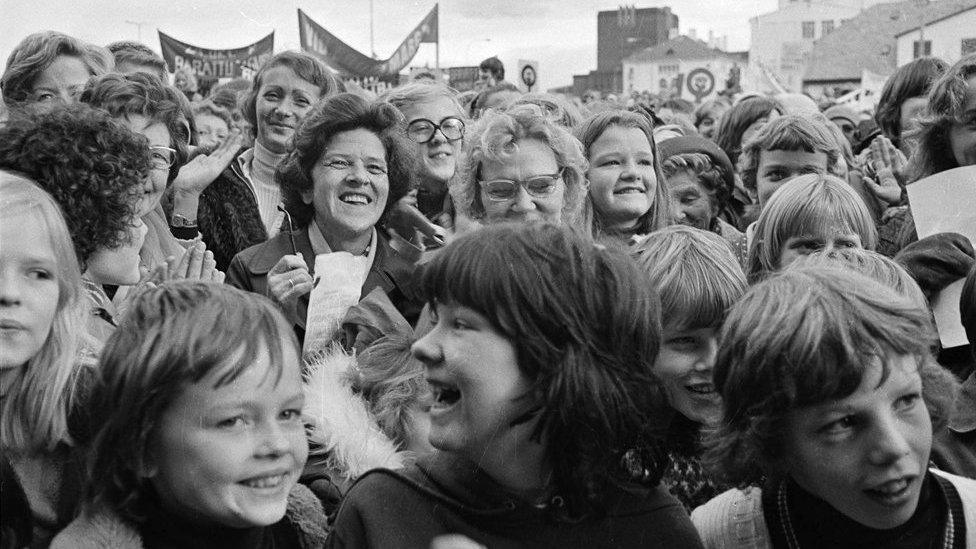Iceland: Top for equality but still 'needs to do more'
- Published
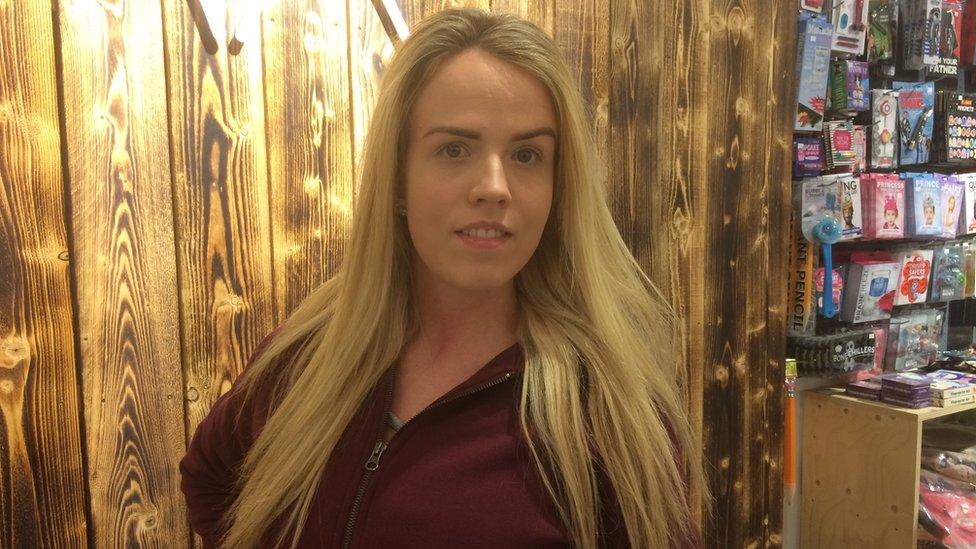
Shop worker Svanhilden Hjaltadottir says Icelandic women are independent "like Vikings"
It is not often that Iceland comes top of the global rankings in anything.
So when they do score a significant victory they announce it from the rooftops.
Few of us will forget the hilarious, ear-splitting screams of the Icelandic commentator at the European football championships this summer, communicating his delight at Iceland's victory over England.
Jubilant does not quite do it justice.
As part of the BBC's 100 Women series, I have come to Iceland to find out why this country is considered the best place to live and work as a woman.
Viking heritage
It appears women's independence in Iceland has ancient roots.
I meet Svanhilden Hjaltadottir behind the till manning (or should it be womanning?) one of the many trendy gift stores in Reykjavik.
"We are like Vikings," she laughs. "We are strong and we like to do things on our own."
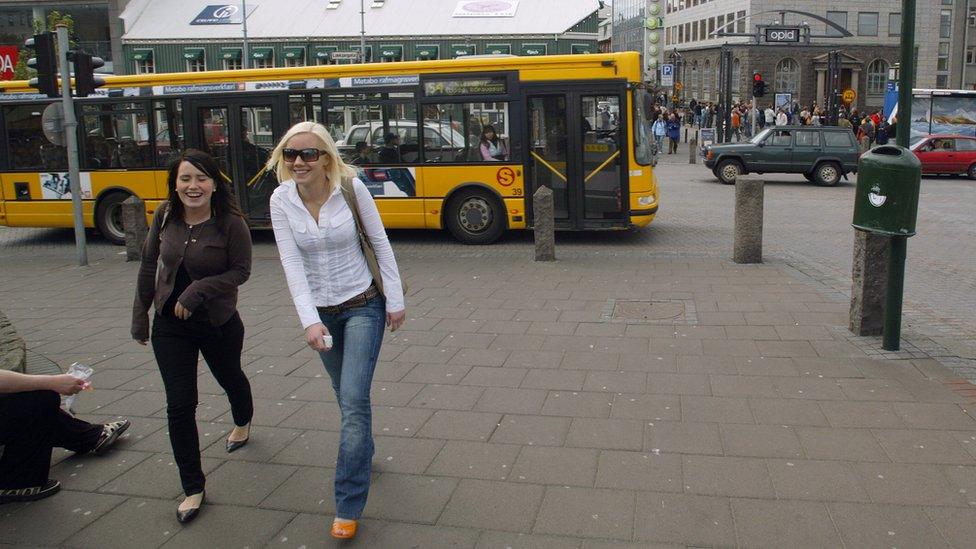
Iceland has the highest proportion of women in its workforce
Anyone you chat to here in Reykjavik knows exactly where Iceland sits in the Global Gender Gap Index put together by the World Economic Forum - and it has been number one for a good few years.
The UK meanwhile languishes in 20th place.
There are a number of factors that make up Iceland's top global ranking. For instance, at 88% it has the highest rate of female participation in the workforce.
For 20 of the last 50 years the country has had a female head of state, 40% of company board members now have to be women - the impressive list of chart-topping statistics goes on.
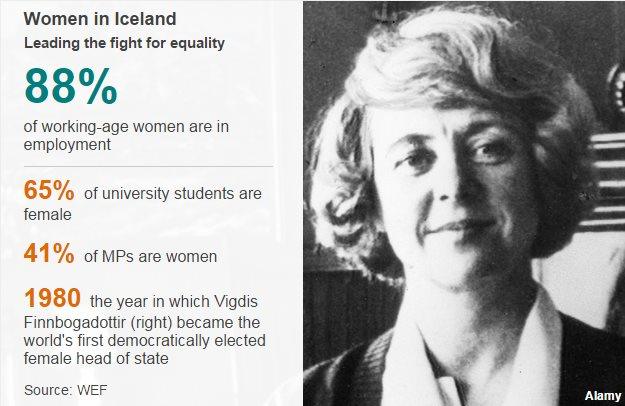
Yet despite that historically powerful role, in the 1970s that did not translate to equality in the workforce until the women of Iceland took things into their own hands.
All-out strike
The first universal women's strike in Iceland happened on 24 October 1975.
Unlike protests in other parts of the world as well as thousands of women gathering in central Austurvollur, thousands more walked out of their workplaces and homes, leaving colleagues and family members to fend for themselves.
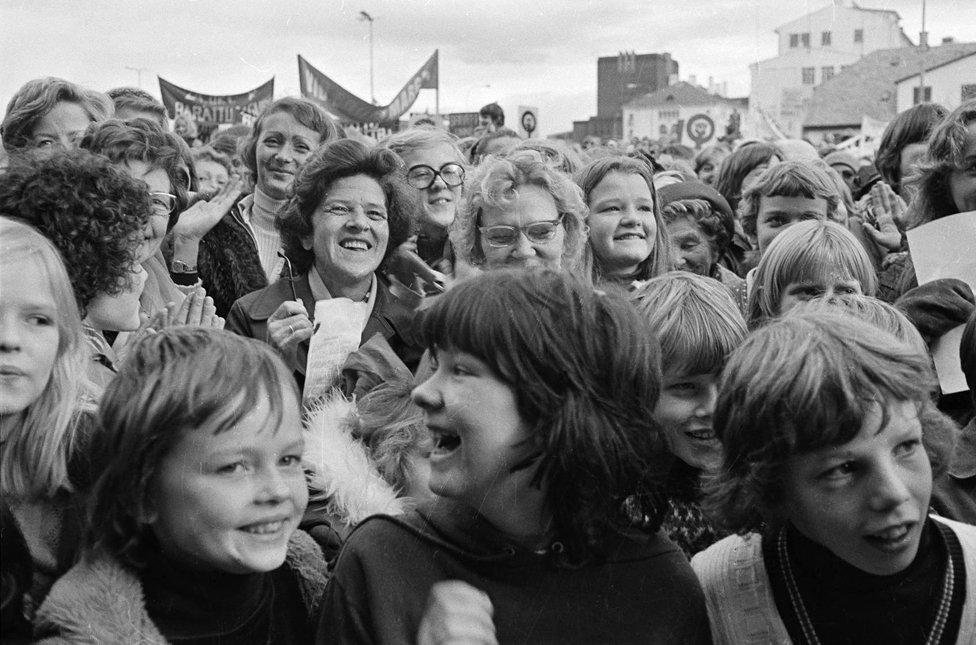
Women and children take part in the first universal women's strike in Iceland on 24 October 1975
Some 90% of Iceland's female population went on all-out professional and domestic strike - and that made an impression. Within a few years Iceland had elected the world's first female head of state.
For those women like Ashildur Bragadottir, who were involved in what became known in Iceland as the first "Women's Day Off", it was the start of an economic as well as political process.
"I was at a young age then but remember the day clearly and can recall on feeling proud and a bit overwhelmed.
"Only five years later, or in the year 1980, Vigdis Finnbogadottir was the world's first female president democratically elected, and in the year 1982 the Women's list (Kvennalistinn) was formed."
Of course Iceland has a tiny population, comparatively, but both men and women here have worked to ensure that motherhood and employment are not mutually exclusive.
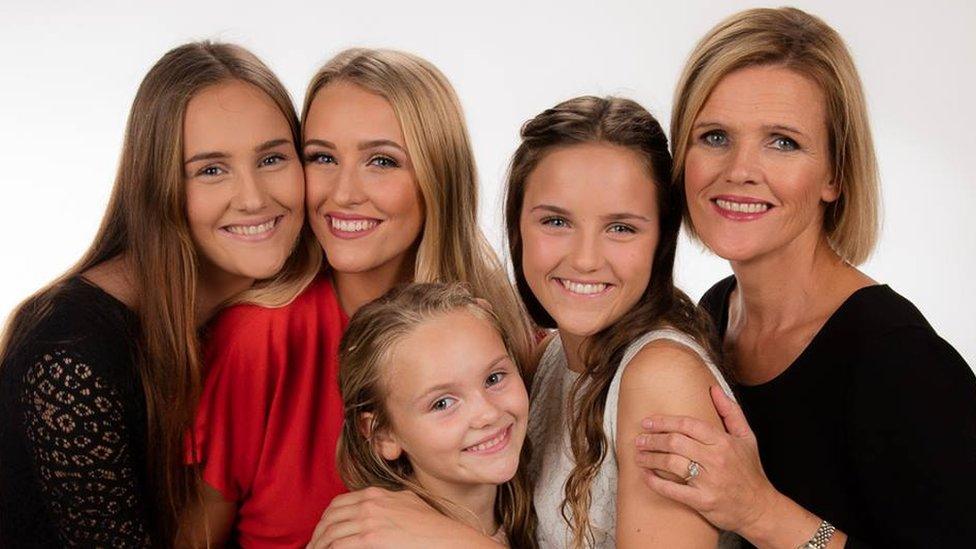
Ashildur Bragadottir (right) took part in the original 1975 protest. Her daughters have been brought up to believe in equal rights
High-quality, affordable nurseries, incentives for men to take parental leave and quotas on company boards have had a huge impact on the working life of women in Iceland.
While the vast majority of them have jobs, they still manage to have an average of two children each.
Enduring inequalities
But for Ashildur's daughters, now in their late teens and early 20s, they feel there is still more to be done.
"Iceland is a small and well-educated nation and women's rights are something that is talked about in politics and in the media," says Unnur Jona, 21.
"We are brought up with the notion that we should have the same opportunities and rights as men, all the time and always, but we know that we aren't there yet. There is still an unexplained inequality with the gender and we still have far too few women's business leaders in general."

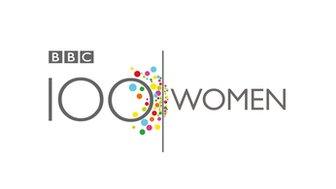
What is 100 women?
BBC 100 Women names 100 influential and inspirational women around the world every year. We create documentaries, features and interviews about their lives, giving more space for stories that put women at the centre.
Other stories you might like:
'I married a man to keep my girlfriend'
'Adults are so obsessed with children they have no time for important things'

Women in Iceland still earn about 14% less than men.
In the UK the figure is higher - a pay gap of about 18% exists between men and women in similar jobs.
So what do the women of Iceland intend to do about it? Strike, of course.
Each year they leave their workplaces and homes on 24 October and gather in Reykjavik's central square again. Not quietly hoping for change, but loudly demanding it.
You can hear more on this story on Wake Up To Money on Radio 5 live on Thursday, 8 December.
- Published14 November 2016
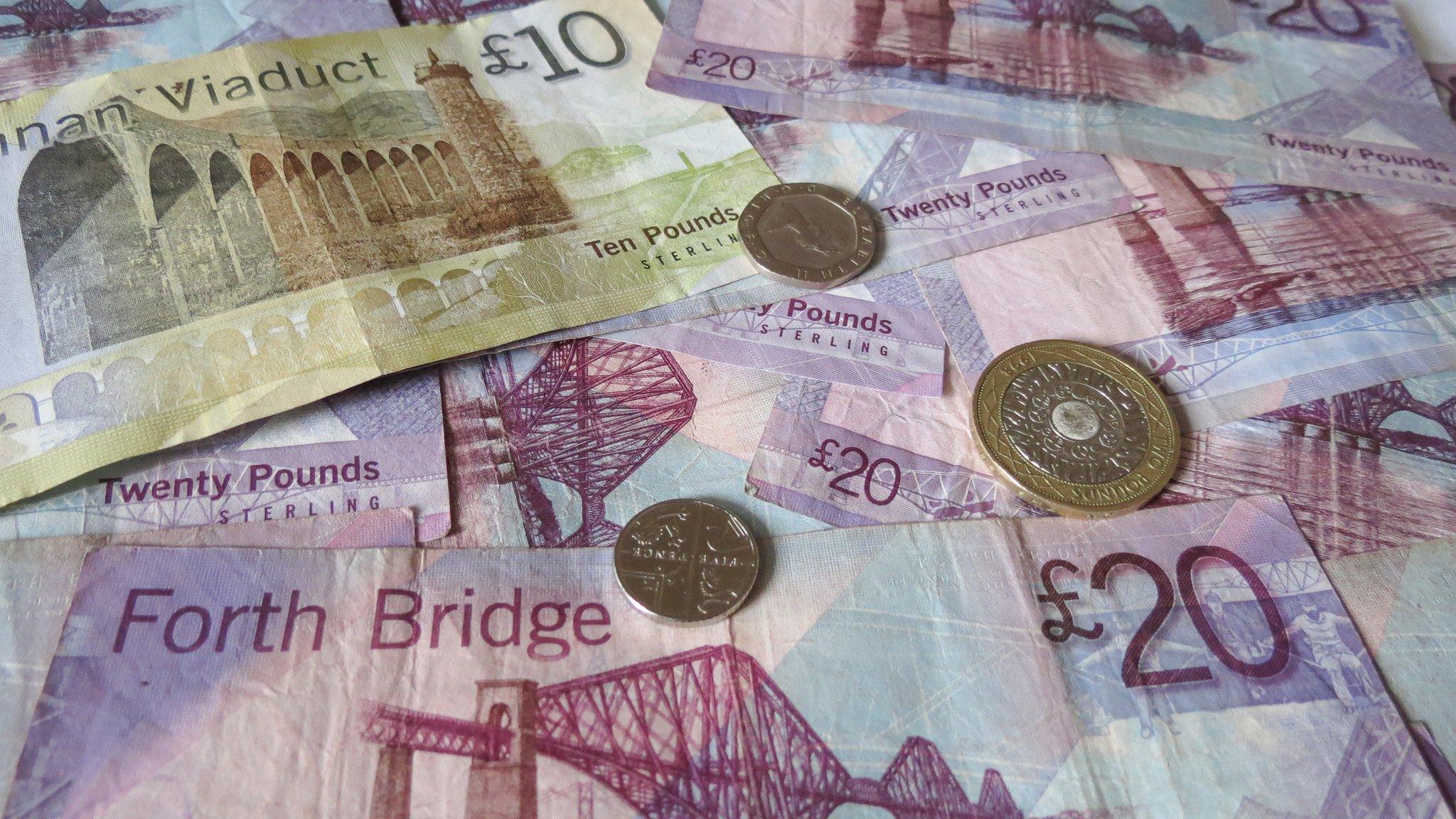
- Published7 November 2016
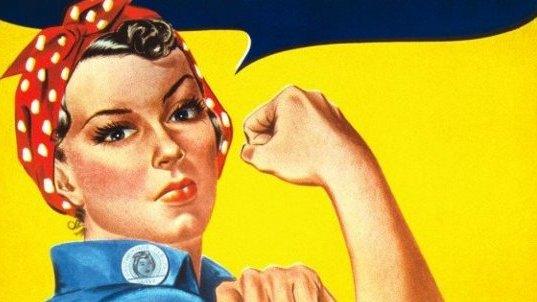
- Published3 October 2016
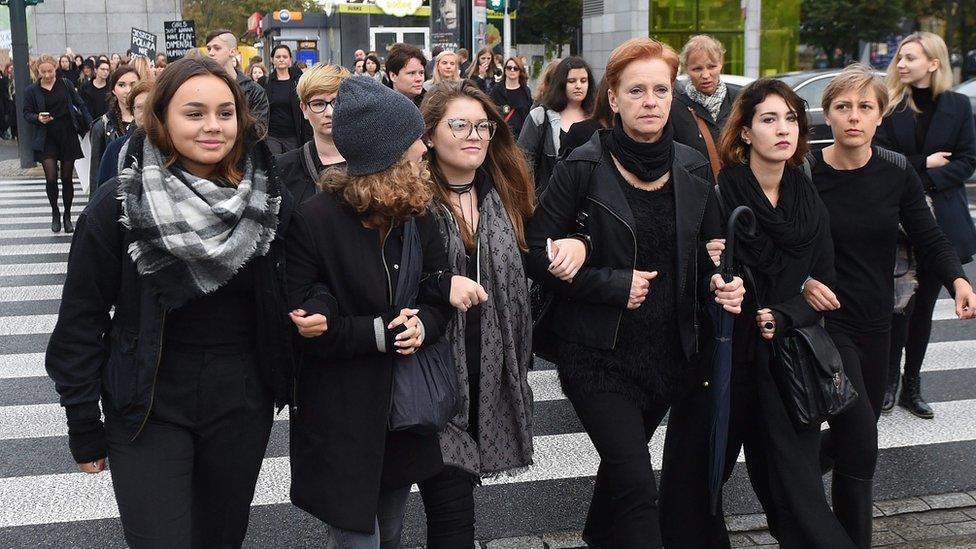
- Published7 April 2016

- Published12 February 2016

- Published23 October 2015
